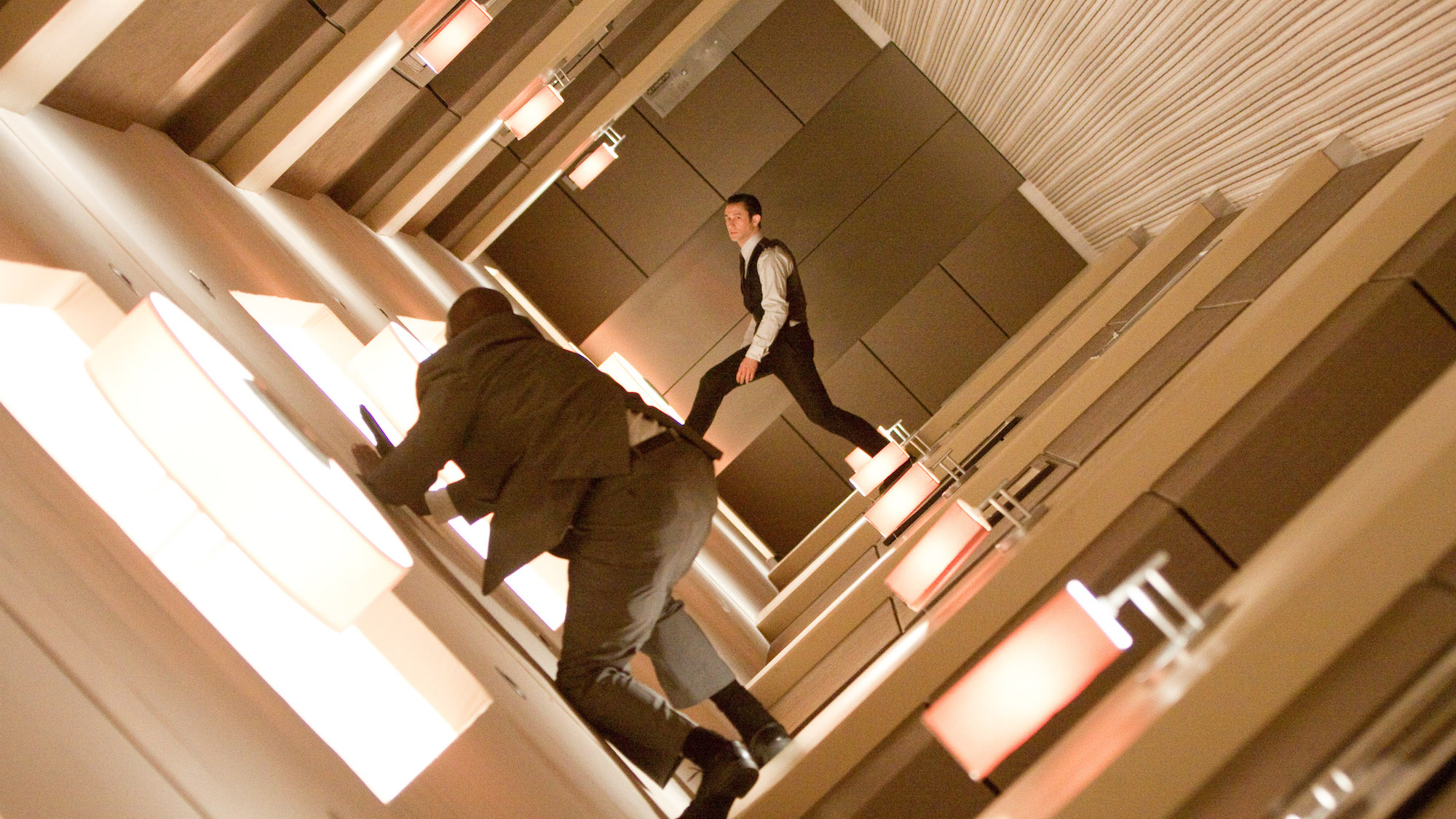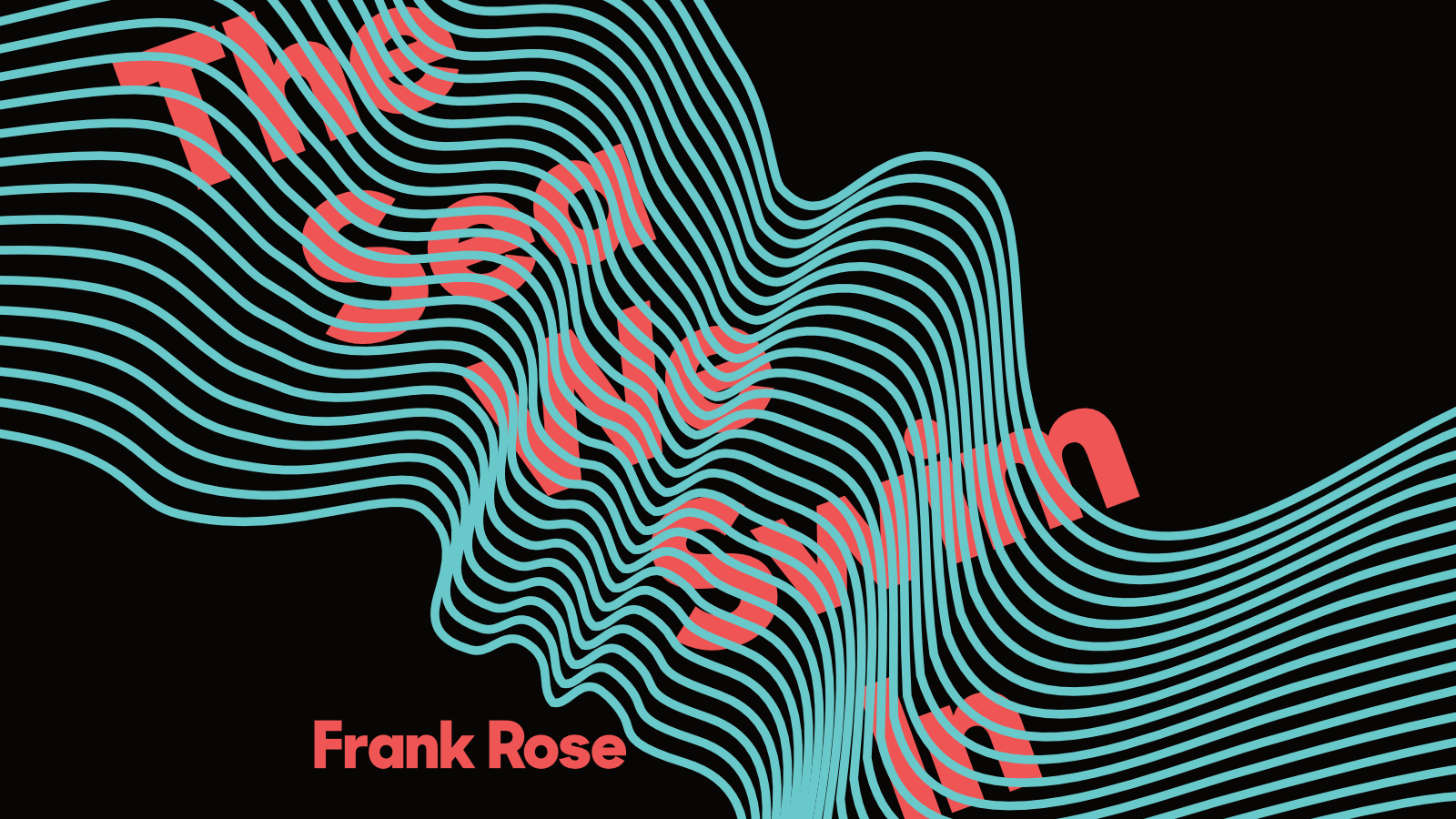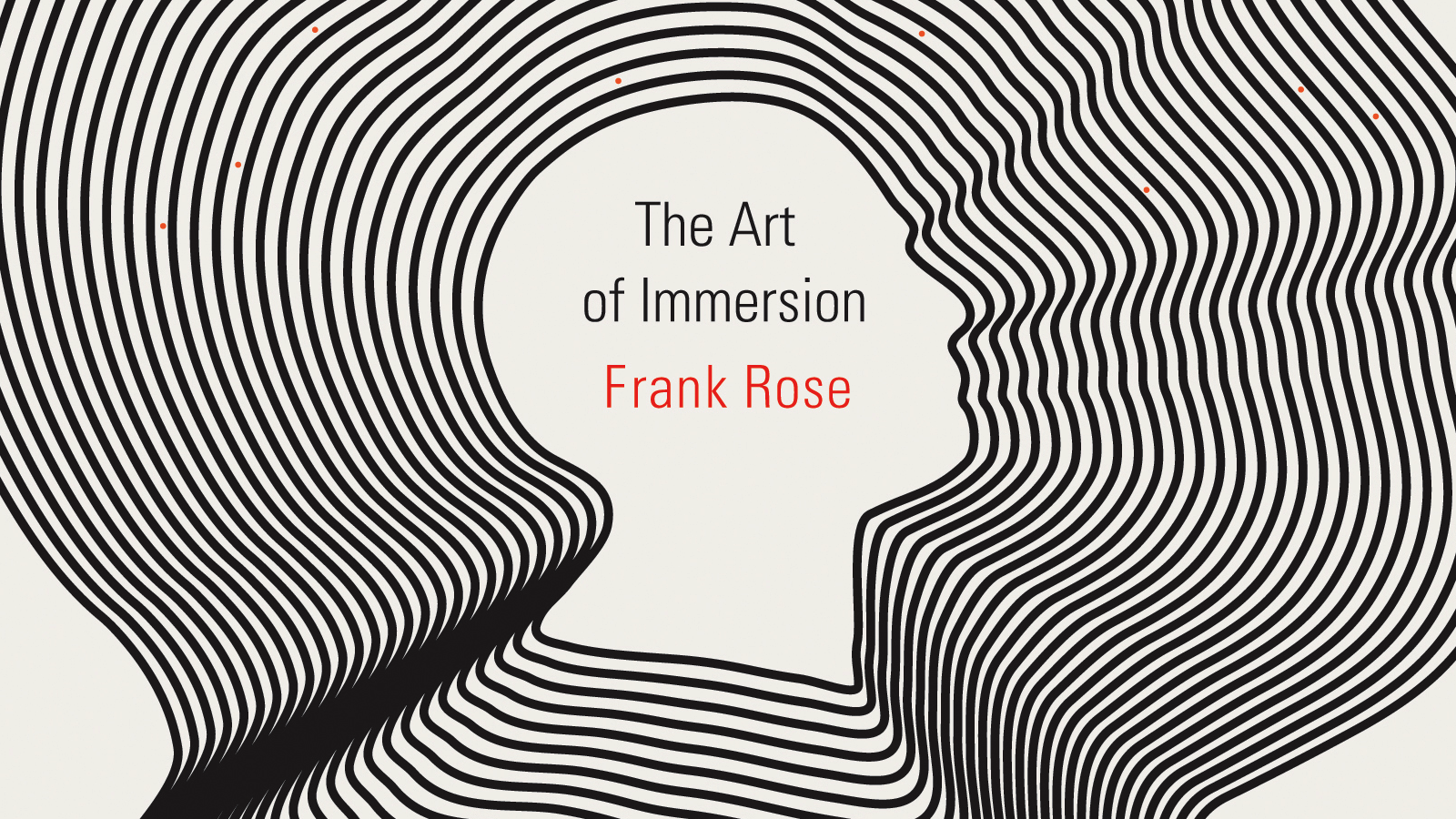
June 4, 2012
One afternoon recently I spent a couple of hours with Jason Silva, the longtime Current TV host who’s been making much-talked-about micro-videos about the co-evolution of humans and technology—the latest of which will be featured at TEDGlobal later this month. We were sitting in a window table at The Smile, a subterranean hangout in a once-grand row house on Bond Street in lower Manhattan. Behind us was a brick wall that seemed to grow out of the schist the house was built on. In the glinting sunlight it looked more real than real. Maybe that was what got us talking about Inception, Christopher Nolan’s metaphysical action flick, which came out two years ago and won’t let go.
From there it was inevitable that we’d slide into such Inception-like films as the Wachowski siblings’ The Matrix, David Cronenberg’s eXistenZ, and others. These are movies that seek to limn the parameters of reality. Eventually we had to go, but we ended up continuing the conversation online. What follows is an edited transcript in which we question everything, including those bricks on the wall.
Jason Silva: These are films that immerse us while also unsettling us. They are multi-layered experiences that suck us into their narrative on one level, while at the same time making unsettling suggestions about our own perception of reality.
The Matrix says that reality is just patterns of information interpreted by your brain, electrical signals that can be emulated by a sufficiently advanced computer system. In other words, reality could be an immersive virtual simulation. In Cameron Crowe’s Vanilla Sky, we can achieve immortality by getting cryogenically frozen and signing up for a virtual lucid dream that is sculpted moment-to-moment out of the iconography of our lives. In David Cronenberg’s eXistenZ, we plug into a synthetic life form that rewires our nervous system, providing a game-like universe where we are fully immersed in an adventure.
Movies like this offer an uneasy takeaway. We love movies because they provide dream worlds we can lose ourselves in—and yet these movies suggest that their waking dream worlds are no less real than “reality,” because reality is also a story we tell ourselves.
Frank Rose: Don’t forget The Truman Show. Jim Carrey as a guy whose entire life has been televised from birth—unbeknownst to him.
Jason: My biggest takeaway from The Truman Show is the scene when Christof [Ed Harris] is pressed as to why Truman Burbank accepted his reality for so many years before questioning it—and Christof utters, “We accept the reality with which we’re presented.”
This speaks to all of us. We reside in reality tunnels. We live inside conceptual and symbolic constructs. We accept what we receive through our senses, making no effort to examine just how much of what we take in is interpreted. And if our “reality” is just a composite, the sum of our creative and linguistic choices, then the most difficult realization is that, yes, we live in a prison, an illusory reality, but the gate to the prison is wide open. We can change our reality, co-author it, edit it, upgrade it.
Frank: William Gibson defined cyberspace as “a consensual hallucination experienced daily by billions.” Could you say the same thing about reality? Is that what Christopher Nolan is saying in Inception?
Jason: I think Nolan is saying that dreams do not lack reality, that they are real patterns of information. As Jonah Lehrer pointed out, watching a movie is the closest thing to REM sleep you can have with your eyes open: “From the perspective of your brain, dreaming and movie-watching are strangely parallel experiences.” When you experience the kind of sensorimotor overload that comes with watching a film, the prefrontal cortex is inhibited so you can lose yourself in it. But this film was profoundly unsettling in its brilliance. I mean, how can you ever really know if you’re dreaming or awake?
Frank: Maybe you can’t. That’s why everybody loves the spinning top conceit. The first time I saw the movie I thought the spinning top only came up at the end—it was only on seeing it again that I realized it was planted in one of the very first scenes. Sort of like an idea being planted in your head during a dream, I suppose.
Jason: Devin Faraci says all films are inceptions—that Nolan’s Inception is so resonant because it’s about the thing that all great movies strive to do. “You walk out of a great film changed, with new ideas planted in your head, with your neural networks subtly rewired by what you’ve just seen,” he writes. “On a meta level, Inception itself does this, with audiences leaving the theater buzzing about the way it made them feel and perceive. New ideas, new thoughts, new points of view. . . .”
Frank: You know, they used to call Hollywood “the dream factory.” In fact, there was a 1950 book called Hollywood, the Dream Factory by an anthropologist named Hortense Powdermaker. She had just come from studying headhunters in New Guinea and she decided to settle in Hollywood and study the natives there. But for all that, as Powdermaker wrote, “Hollywood is engaged in the mass production of prefabricated daydreams,” the idea of fundamentally changing the way people perceive goes against every convention Hollywood can muster.
As Patrick Goldstein pointed out in his Los Angeles Times column, Hollywood’s old guard really hated Inception. They were nonplussed by its game-influenced narrative style, confused by its puzzle-box structure, and utterly confounded by its dream-within-a-dream conception of reality. By this time it had been number-one at the box office for three weeks running—but they just didn’t get it.
Hollywood had had this kind of problem before. The classic example was Bonnie & Clyde, which glorified criminality in a slapstick fashion that studio execs—and most film critics at the time—found utterly repugnant. But what Newsweek dismissed as “a squalid shoot-’em for the moron trade” was greeted on ’60s college campuses as a pop take on counterculture rebellion.
Studio execs were equally aghast at Pulp Fiction. You could get away with nonlinear narrative if you were a senior renegade like Robert Altman, but who was this Tarantino guy to tell a story every which way? And yet within a few years, with films like Paul Thomas Anderson’s Magnolia and Nolan’s Memento, nonlinearity became so accepted it was almost commonplace.
Inception exposed the same sort of generational and cultural divide. I think it comes down to this: Hollywood movies aren’t really supposed to have a meta level. And they certainly aren’t supposed to change the way you feel and perceive.
Jason: But that’s what movies do! Ido Hartogsohn wrote a great piece for Reality Sandwich about Avatar and the psychedelic undertones of cinema—how it aims to pull us out of context and reveal a hidden reality that underlies all things. I’ll quote directly:
Hollywood cinema has been flirting with our culture’s subconscious for some time now. Blockbuster fantasy and sci-fi films, ever-more popular in recent years, have acted as a Jungian shadow to our culture’s proclaimed rational and materialist view of reality. Films such as Star Wars, Lord of the Rings, The Matrix, Harry Potter, The Chronicles of Narnia, and The Golden Compass have presented us with a re-enchanted world. These movies posit an unseen and outlandish reality existing alongside the “normal” world, and this serves to support a growing sense of paranoia about the deceptive qualities of consensus reality and the existence of hidden and enchanted dimensions to our world. Cinema has thus functioned as our culture’s collective dream.
Cinema can be as cathartic as a great psychedelic experience. In fact, I think movies provide the best psychedelic trips because they are highly tuneable and controllable, no doubt assisted by an inhibited prefrontal cortex. Nolan can design a mind-blowing hero’s journey in every movie without the existential risk you’d get taking DMT or LSD. The level of precision a filmmaker has in “sculpting” the details of the cinematic experience means he can carry our psyches along for the ride of a lifetime. He can guide us towards a place of ecstatic illumination.
Frank: Okay, maybe I’ve just watched too many Oscar ceremonies. I certainly agree that for a lot of directors, altering the audience’s state of consciousness is very much the point. But I suspect that if a movie is going to be transcendent, one of the first things it has to transcend is Hollywood convention. Which of course both Christopher Nolan and James Cameron have done.
Jason: Hartogsohn is particularly jazzed about the mind-altering potential of 3-D. From the same piece:
3D is the new and the most immersive media drug to have emerged out of our high-tech media complex, the most successful attempt to emulate the effects of the psychedelic state. . . . Psychedelics invoke a kind of dream experience. They are about traveling between dimensions, leaving the commonplace dimension of reality for an enchanted world. . . .
As Terrence McKenna never grew tired of reminding us, the psychedelic experience dissolves boundaries. It dissolves the boundaries between “reality” and “hallucination,” between “madness” and “saneness.” . . . While under the influence of psychedelics, and to a significant extent also during periods of psychedelic use, one experiences the world as magical. The everyday world of yesterday suddenly seems to be the bleak, colorless one, the deadly illusion of an unaware mind. Two opposites, hallucination and reality, dream and waking life, suddenly exchange places. Could the dream life be the true life?
Frank: I interviewed James Cameron for my Wired magazine piece on Avatar. We didn’t talk about psychedelics, but he was certainly clear about wanting to dissolve the boundary between fiction and reality. His goal in shooting in 3-D was to eliminate the “screen plane”—the surface the movie is projected onto. In 2-D the screen plane is the screen, but in 3-D it’s just an imaginary surface that other directors went to great lengths to try to preserve. Cameron wanted to get rid of it because he saw it as a subconscious barrier between the audience and the movie. He wanted you to be able to totally immerse yourself in his movie.
Dissolving boundaries is what all digital media is about. Several years ago, when the producers of the pioneering Web video Prom Queen set up MySpace profiles for their characters, fans started friending the characters and sending them messages. At first the producers didn’t know what to think: Didn’t these people realize it was all a fiction? It took them awhile to realize that if the audience was this engaged, those characters had better write back.
In fact, we’ve always wanted to blur the boundary between fiction and reality. The whole point of fiction—movies, books, whatever—is to lose yourself in another world. It’s just a question of whether the technology allows it. But as much as we’ve always wanted this, we’ve feared it as well. Don Quixote went tilting at windmills because he read so many books about the bygone age of chivalry he thought he was a knight-errant. He lost his mind from reading too much. Movies simply made the unreality of fiction seem that much more real.
Jason: It seems that what we need is to be immersed into a world where the stakes are raised. A reality more real than real. David Fincher’s The Game offers a meta-example of this, as the Web site metaphilm explains:
Nicholas Van Orton [Michael Douglas] is the man who has everything, and thus values nothing. As an insanely successful control-freak investment banker who disdains all those who should be closest to him, Van Orton is at once, as Percy puts it, “both the hero and asshole of the cosmos.” His wealth and power have sated him to the point of extreme boredom. . . . . What are the conditions under which such a man could actually see the Parthenon and not be bored?
The answer, of course, is a “game” known as CRS that, like cinema or marijuana, heightens the intensity of reality, lending it an enchantment that proves irresistible to the child in all of us:
Initially, Van Orton is intrigued by the attention; he smiles as he walks into the airport and realizes, with the shock of discovery, that every exchange, glance and action is imbued with tremendous potential significance. He is returned to that state of innocent childhood belief that around each corner the scene has been constructed just prior to his arrival and will collapse just after his departure. But he doesn’t know how far it goes, where it starts and ends, and why. Like life, he is only armed with the one clue that the purpose of the game is to discover the purpose of the game.
In 1970, Gene Youngblood wrote a book called Expanded Cinema in which he calls for a cinema that will satisfy the new and restless consciousness of modern man. Our existential malaise, having only been exacerbated by material wealth in the Western world, requires a new form of media to shake us into a state of wonderment and awe. “When we say expanded cinema we actually mean expanded consciousness,” he writes. “Expanded cinema isn’t a movie at all: like life itself, it is a process of becoming, a part of man’s ongoing historical drive to manifest his consciousness outside of his mind, in front of his eyes.” This is the ultimate inception: an epic quest for self-awareness.














Comments
Jeni Mawter
- June 6, 2012
Great article, Frank. Thank you.
Heard you speak at Creativity and Technology conference in NY last year and read (and highly recommended) The Art of Immersion. Both were brilliant.
Jeni Mawter (writer) from Australia
Frank Rose
- June 7, 2012
Thank you, Jeni. Very nice to hear.
cinesurreal
- October 17, 2012
Dan Zukovic's "DARK ARC", a bizarre and surreal modern noir dark comedy called "absolutely brilliant...truly and completely different..." in Film Threat, was recently released on DVD and Netflix through Vanguard Cinema and is currently debuting on Cable Video On Demand. The film had its World Premiere at the Montreal Festival and its US Premiere at the Cinequest Film Festival. Featuring Sarah Strange ("White Noise"), Kurt Max Runte ("X-Men", "Battlestar Gallactica") and Dan Zukovic (director and star of the cult comedy "The Last Big Thing"). Featuring the glam/punk tunes "Dark Fruition", "Ire and Angst" and "F.ByronFitzBaudelaire" and a dark orchestral score by Neil Burnett. TRAILER: http://www.youtube.com/watch?v=mPeG4EFZ4ZM
***** (Five stars) "Absolutely brilliant...truly and completely different...something you've never tasted before..." —Film Threat
"A black comedy about a very strange love triangle" —Seattle Times
"Consistently stunning images...a bizarre blend of art, sex, and opium, "Dark Arc" plays like a candy-coloured version of David Lynch. " —IFC News
"Sarah Strange is as decadent as Angelina Jolie thinks she is...Don't see this movie sober!" —Metroactive Movies
"Equal parts film noir intrigue, pop culture send-up, brain teaser and visual feast." —American Cinematheque